Support strong Canadian climate journalism for 2025
The Trudeau government says it was warned by public servants about the risks of civil disobedience or protests in advance of its 2016 decision to approve the Kinder Morgan Trans Mountain expansion project. But it wants to keep these warnings, delivered to ministers through internal briefings, a secret.
Natural Resources Canada confirmed, in a new response to a request made by National Observer through access to information legislation, that Prime Minister Justin Trudeau's cabinet ministers were briefed internally about these topics in November 2016. But it has refused to release any of the material, citing a section of Canada's access to information legislation that allows the government to withhold records containing what it considers to be privileged information meant only for cabinet ministers.
"The documents which are relevant to this request have all been exempted from disclosure," the federal department said in its response to the access to information request in a letter dated April 9.
The letter followed a Feb. 12 request from National Observer for briefing material and memos that mentioned civil disobedience or protests in the weeks before the Trudeau government approved the pipeline. The department also sent a separate letter denying access to the final memo to cabinet that provided advice on the Kinder Morgan decision, announced by Trudeau on Nov. 29, 2016.
Canada's access to information legislation requires federal government organizations to release information to Canadians who pay a $5.00 fee within 30 days, unless it has a valid reason to delay or deny access.
Public servants are required to withhold records that are considered to be cabinet secrets. The current legislation also allows public servants to label material as a cabinet secret — even if it is a matter of common knowledge — if they want to prevent it from being released.
Revelations about the warnings have coincided with Kinder Morgan's threat to walk away from the project in the absence of guarantees that the federal government can ensure it can be built, despite strong opposition in British Columbia.
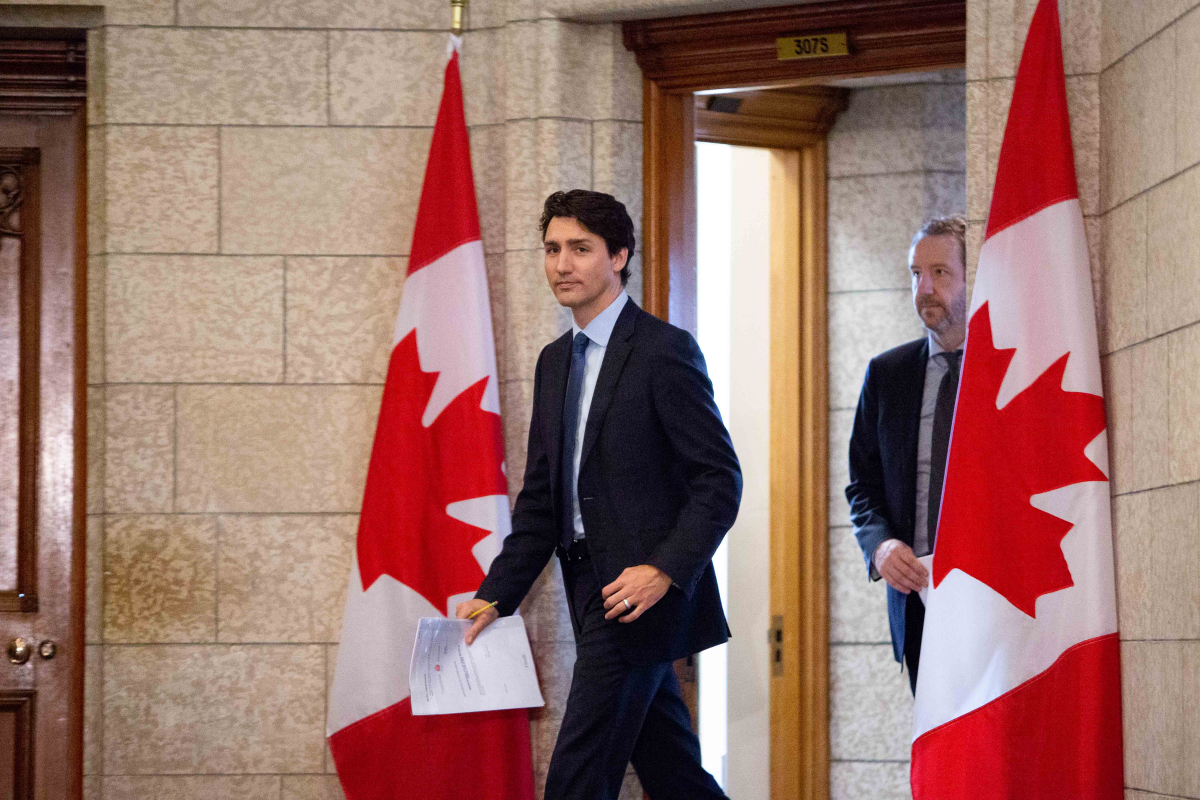
Trudeau cabinet holds emergency meeting on Kinder Morgan
In Ottawa, Trudeau's cabinet held an emergency meeting on Tuesday to discuss how to respond to what business leaders, bankers and oilpatch executives have described as a "crisis."
A number of options are on the table, including investing taxpayer money to buy a stake in the fossil fuel project as well as invoking rarely-used constitutional powers to drive the project to its completion through B.C.
Alberta Premier Rachel Notley said that her government was even considering "purchasing the pipeline outright," in a statement that was also delivered on Tuesday.
But Trudeau's ministers were tight-lipped as they left the cabinet room, many of them rushing away from reporters and saying little about what they would do next.
"I apologize in advance. I’ve got one minute and I’ve got to catch a plane," Natural Resources Minister Jim Carr said as he briefly stopped to take a few questions from reporters with Environment Minister Catherine McKenna and Infrastructure Minister Amarjeet Sohi. "We believe there are many options that will be of interest for the Government of Canada. We’ll examine them all thoroughly. I’ve got to go."
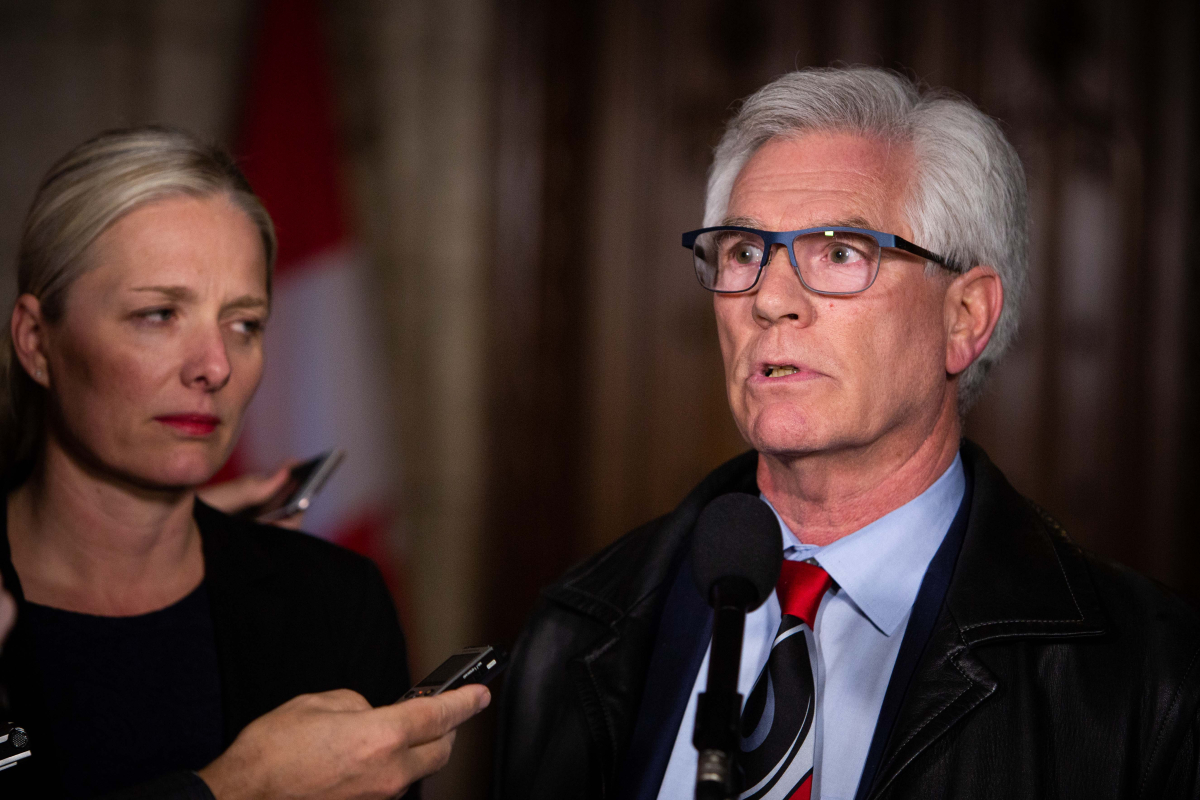
McKenna added in French that the government believed the pipeline was in the national interest, while Sohi declined to provide further updates.
"We don't discuss Cabinet discussions," said Sohi, who represents an Edmonton riding for the Liberals in the House of Commons. "But we are committed to this project. We will get this project built."
Protests and arrests have become a regular occurrence in recent weeks at the site of a Trans Mountain terminal in Burnaby, B.C., that would become a major hub for oil tankers if the pipeline expansion project proceeds. The protests have accelerated in recent weeks after Texas-based Kinder Morgan sought and obtained an injunction to stop protest activity at its Burnaby construction site in metro Vancouver.
The federal government had also received warnings in internal briefings that Indigenous leaders felt it was rushing to conclude consultations instead of engaging with them in a meaningful way, National Observer reported in January. Other documents indicated that scientists had also flagged missing evidence that needed to be addressed, prior to approving the new pipeline expansion.
All of these factors have triggered concerns among Trans Mountain opponents that the federal review of the project was inadequate and should have been redone.
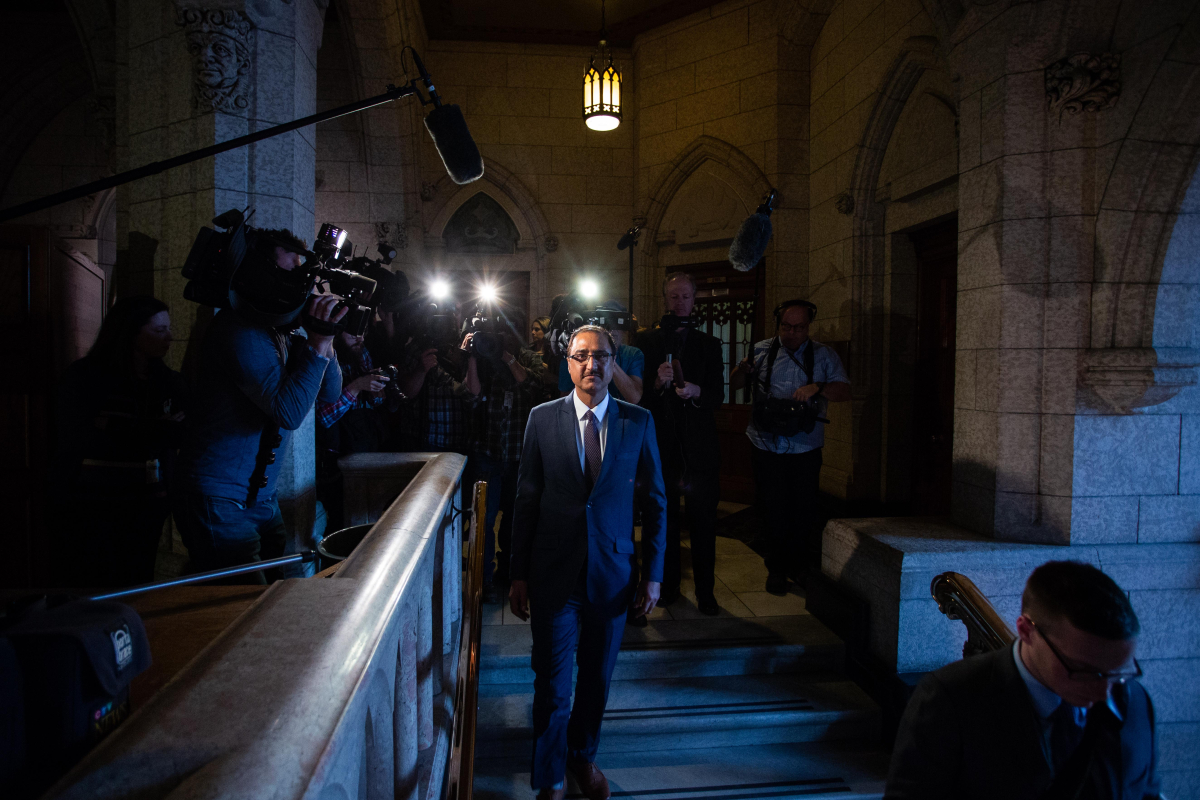
If built, the Trans Mountain expansion would triple the capacity of an existing line through a modified route that would allow it to ship up to 890,000 barrels of oil per day from Alberta to the Burnaby terminal. Supporters of the project, including Prime Minister Trudeau's Liberals and Alberta Premier Rachel Notley's New Democrats, have argued the pipeline would spur growth by allowing oil producers to expand their reach to new markets in Asia.
Opponents say the pipeline would lead to oil spills and push Canada's climate change targets out of reach by driving expansion in Alberta's oilsands sector. The oilsands are the country's fastest growing source of greenhouse gas emissions and home to the world's third largest oil reserves after Saudi Arabia and Venezuela.
But the Notley government has said it plans to cap emissions from the oilsands through a climate change plan. Trudeau, in a February interview with National Observer, also said that the approval of the Kinder Morgan project was part of a "trade off" designed to secure Alberta's support for a national climate change strategy.
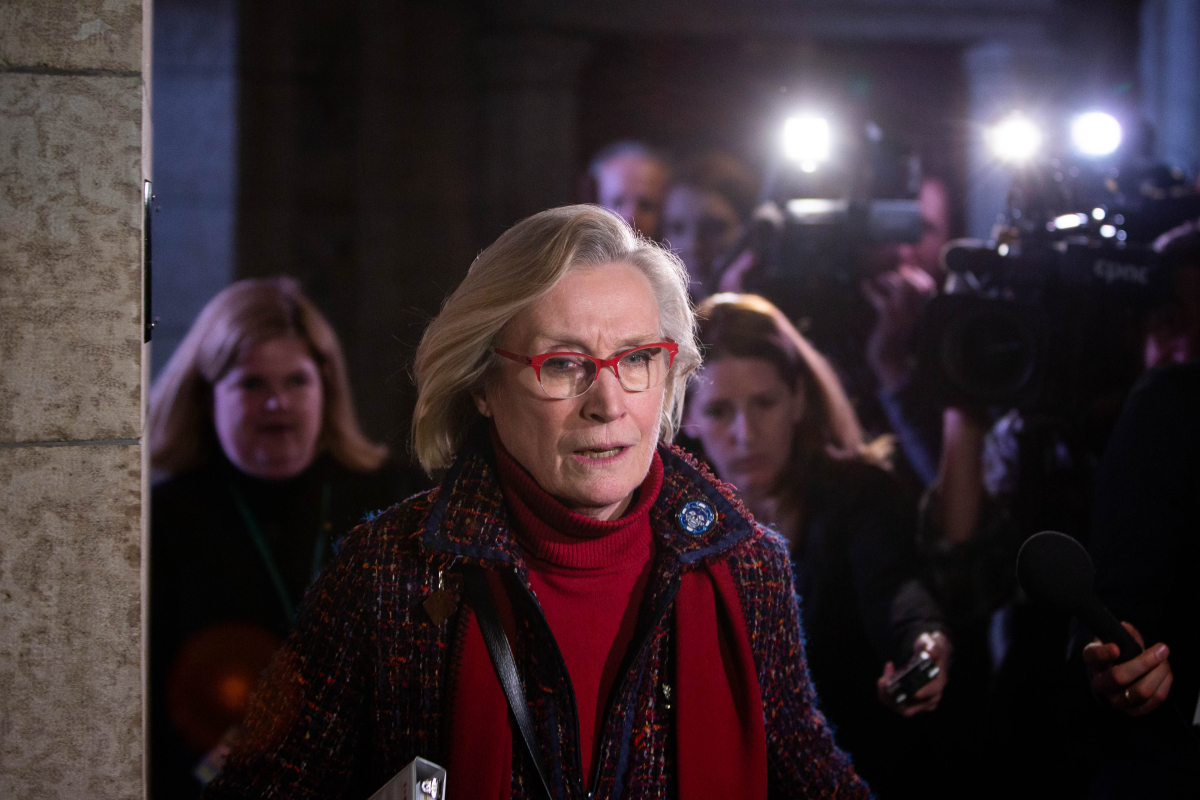
Trudeau's Liberals swept to power in the 2015 election after he had criticized the federal review process for major industrial projects, pledging to restart the Trans Mountain review from scratch. This was all part of a larger plan that the Liberals said they would implement to restore public confidence in the government's oversight of industry.
But once in government, his cabinet instead opted to launch a second review led by a special panel, which confirmed that there were gaps in the process that was initially led by the Calgary-based National Energy Board.
The Trudeau government said it has addressed these gaps through a new multimillion dollar Indigenous advisory committee as well as a $1.5 billion plan, spread out over five years, to protect Canada's oceans.
The government has also said that it would not have approved the Trans Mountain project as well as the Enbridge Line 3 replacement — another pipeline expansion project — if it were not in the national interest.
"The right to peaceful protest is at the foundation of our rights and freedoms in Canada and our government respects that right, be we also expect people to act in accordance with the law," said a spokesman for Carr, the natural resources minister. "We recognize that not everyone agrees with these decisions but we remain committed to working with provinces, territories and Indigenous peoples to ensure a strong economy while taking leadership on the environment.
"Our government is actively exploring all options at our disposal to ensure this project moves forward including regulatory, legal and financial options. It's not a matter of whether the project will go ahead but how. We intend to work with everyone because this is a project that will benefit people right across this country. This pipeline will be built."
Editor's note: This article was updated at 9:35 a.m. ET on April 11, 2018 to include additional background information about the access to information process and new statements from the office of Natural Resources Minister Jim Carr.

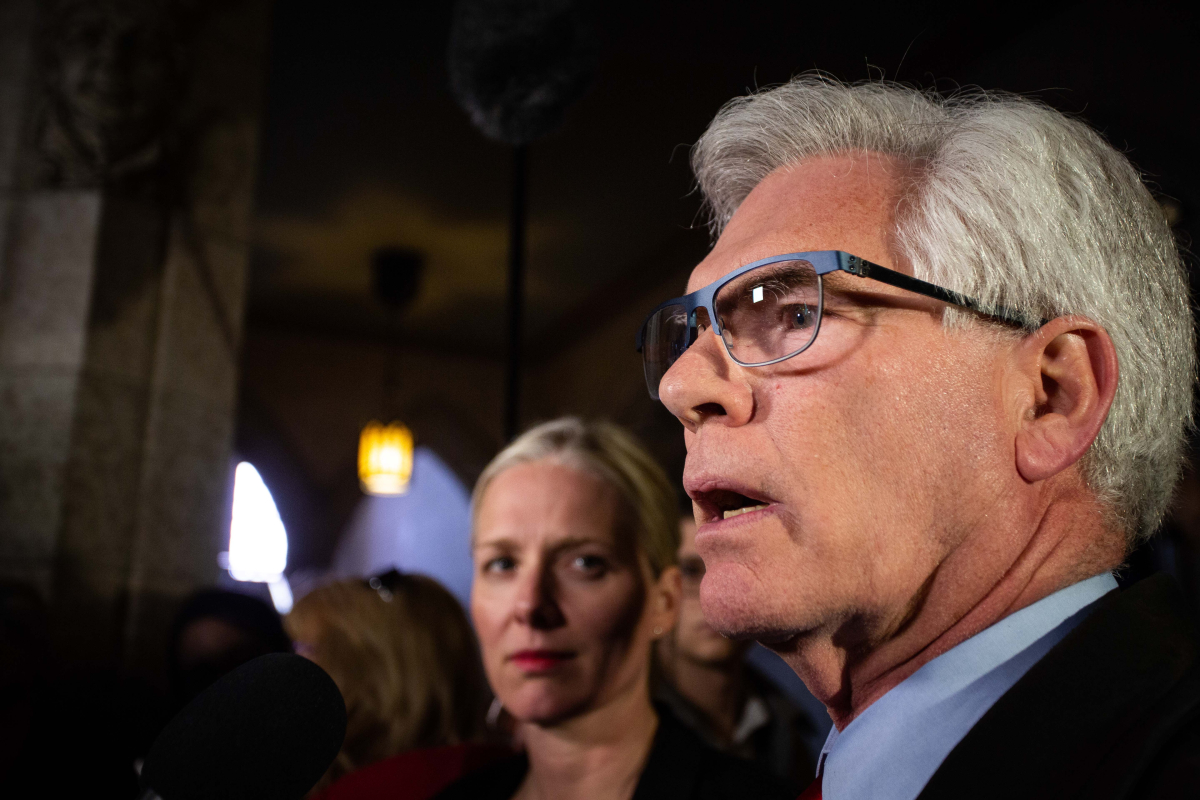

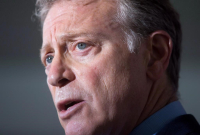

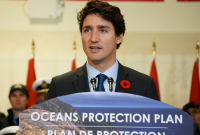
Comments
More doublespeak. Shameful, inexcusable, predictable: Trudeau government deception.
Thank you for this article. I continue to wonder why there is no substantive public/media debate on what constitutes the 'public interest'; what is the full definition of an 'economy' or a fair/holistic measure. Where is the
For Alberta to purchase the pipeline outright would be like buying Eastman Kodak after everyone's gone to digital cameras or Olivetti in the hopes of flogging yet a few more typewriters.
Seems to me if they were so sure it was going to be built they wouldn't need to constantly harp on about how sure they were it was going to be built.
“The Trudeau government said it has addressed these gaps through a new multimillion dollar Indigenous advisory committee as well as a $1.5 billion plan, spread out over five years, to protect Canada's oceans.” This is not true. The government has not answered all six questions in the report of the Ministerial Panel; it does not appear that Trudeau, Carr and McKenna have even read that report.
Where is that reply to be found, to the extent it was made? Already in his report of November 3rd 2016, Mike De S. indicated that the government was claiming it had "closed the gaps." I'd like to see the report.
Here's what they should have discussed...Engineers where put on this earth to do the engineering ! Politicians?…no one has figured that out yet ?
In my opinion we have is an uncompleted engineering assessment of a basic engineering issue ,that has evolved into a political nightmare, unnecessarily. The way out is to let our stable of professional technical experts complete their review of the incomplete Trans Mountain Expansion (TMX) pipeline …and THEN decide where the export infrastructure and tanker shipping lanes will be permitted .
Throughout this pipeline/tanker chaos 2 streams of activity have carried on…the politicians have done their fruitless politicking…while behind the scenes the government staff has created a near perfect script for how to complete this vital oil export plan. The government will have to ‘fess up’ that they prematurely, politically. approved a ‘too risky’ plan…and now must mend that error while using the common sense concepts of their Omnibus Bill C69.
Embarrassing and maybe costly…but first let’s get that reassessed less risky export plan underway…and settle later for our rushing into a unacceptable decision which was supposed to target the public interest, but regrettably missed that mark .
Carl Shalansky, P. Eng. (Retired)
Blog: https://redfern3359.wordpress.com/
(604) 986-4657
I detested the secrecy of the Harper government and could hardly wait to get rid of it.
During the 2015 federal election campaign Justin Trudeau and the Liberals promised to make decisions based on evidence and science. They also promised to govern in an open and transparent manner - specifically they claim the government would be “open by default “.
It is now more than two years into the Liberal mandate and, unfortunately, the Liberals are governing in the same secretive style as the Harper government.
The government’s first draft of a revised Access to Information Act would have made it more difficult for the average citizen to access information produced or held by the government.
When the federal government approved the Kinder Morgan expansion pipeline it had been made aware of the results of the study by the Royal Society of Canada that stated ““There are large unexamined risks to the marine environment from oil sands products,” the scientists wrote in their letter to Trudeau. The letter also told Trudeau that it would be “scientifically unfounded” to assume that damage from these products can be lessened.”
(National Observer - “Inside Ottawa's rush to dispute science before pipeline approvals“ -October 16 ,2017). The conclusion of the study was that research was needed on the effect bitumen in water.
Although the conclusion was based on the review of 9000 pieces of scientific literature, the government managed to get a couple of its own scientists to cast doubt on the study. It approved the pipeline and, at the time ,it insisted that it’s approval was scientifically based. However, a year later Justin Trudeau acknowledged that the decision to approve the pipeline was a trade-off to get Alberta’s support for his climate change plan .
Trudeau stated that the government would put $1.5 billion into a plan to protect the Canadian coastline. However, the only action indicated is improving the spill response and the Coast Guard. There is no mention of research on the effect of dilbit in water despite the fact that he was informed of the results of the study overseen by the Royal Society of Canada and partially financed by CAPP. Indeed, again government scientists were co-opted to suggest that the composition of dilbit is not a trade secret even though Kinder Morgan has refused to explain exactly what is in the dilbit it uses to allow the tar to flow through a pipeline.
Another real tragedy with the pipeline push is that there is unlikely to ever be an overseas market for dilbit. For the first time in 40 years, the United States has so much oil that it is allowing exports. Russia is putting in a new pipeline to send oil to Asia .as noted in one of the comments to this story, Bahrain has discovered a huge reserve of oil .the oil from Russia and the Middle East is much higher quality than the tar from the tar sands. There will be no overseas market. But there will be many jobs attempting unsuccessfully to clean up the inevitable oil spills that will occur when shipping dilbit. That may be of some comfort to those fixated on temporary jobs only but it will be muted by the loss of jobs in British Columbia’s tourist industry .
Citizens have a right to know what the government is doing. Despite its promise of open and transparent government, this government refuses to provide much information on anything. There have been few details on the climate change plan itself and certainly no list of measures to fight climate change, no targets for specific measures, and no way for citizens to keep track of results as we move forward. We don’t know the details of the so-called coastal protection plan. Indeed, we don’t know whether or not any work has been done on it at all. The only things we do know is as a result of access to information requests. As noted, we know that Trudeau was informed before the Kinder Morgan decision that more research was needed on the reaction of dilbit in water but chose to ignore it based on vague brushoff’s by a couple of scientists employed by the government itself and therefore subject to influence by the results the government wanted to hear.
Instead of transparency, citizens are provided with verbal bromides: they use the word transparency but won’t take the initiative to provide information on what they’re doing or what their plans are; they say they use science but provide details of the science; they say they make decisions based on evidence but don’t say what that evidence is; they use meaningless jargon like “national interest” without defining how they arrived at that conclusion ; they use the term “world-class” which is simple jargon with no meaning at all.
The only definition of “national interest” versus San Jose that’s the finalt here Mary here’s the text you has the techs predators aare women were twe are right she’s I didn’t notice that changed it is I thought Columbus at a chance we sellseems consistent regardless of the stripe of the government, is that “national interest” seems to be whatever the government of the day thinks is in its own political interest.
In the end, Justin Trudeau comes across as a ruthless, cynical politician who will say anything and do anything to hold down political power. Unfortunately, that shows us what a sorry state Canadian democracy at the federal level is in. The official opposition is not upset about the Kinder Morgan pipeline. Indeed, the official opposition would be taking more extreme measures to push through the pipeline if it became the government.
Civic disobedience is the only possible course left to bring politicians to their senses.
Hear! Hear! The most coherent summary of our Trudeau government, so clearly and intelligently expresses my views. The only exception being this weird sentence/phrase about "national interest" (something went haywire there: "that’s the finalt here Mary here’s the text you has the techs predators aare women were twe are right she’s I didn’t notice that changed it is I thought Columbus at a chance we sellseems consistent regardless of the stripe of the government," . However I share your views about the liberal misuse of "national interest".
Doesn't say much for Trudeau's "Open and transparent policy". I expect the politicians of all strips are guilty of lack of transparency.
They all are interested in getting elected or protecting their own skin rather than governing and firm action plans.